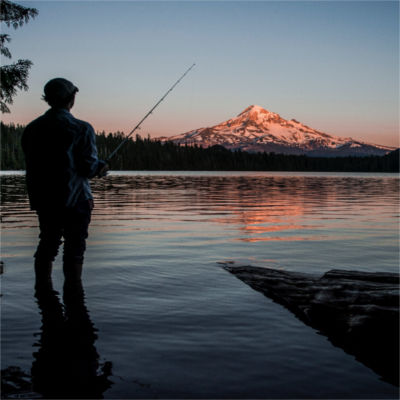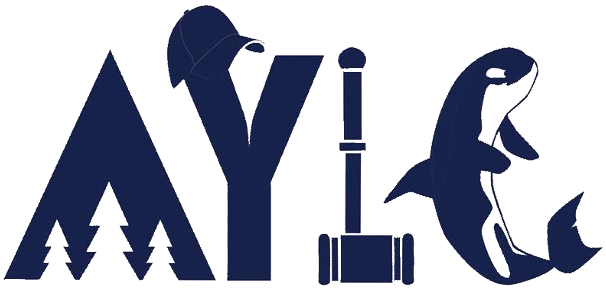Hunting and Fishing in Alaska
Hunting and Fishing in Alaska

Is hunting and fishing important in Alaska?
You bet. Ask anyone and they will probably say that among their hobbies or their favorite actives are hunting and / or fishing. The founders of our state were hunters and fishermen too and they recognized that fish and game were so important that they reserved fish, wildlife, and water to the people for common use is Alaska’s Constitution.
What do I need to do to hunt and fish in Alaska?
When you hunt or fish, you should use common sense, safety, and have the proper attitude of respect toward the land, people, and animals.
Before you go out into the field, make sure you have a proper license. A good place to start looking for information is the Alaska Department of Fish and Game.
If you are 16 or older, you must have a license for sport fishing, hunting, or trapping. You can purchase your license online or at most sporting goods stores. If you are fishing for king salmon, you need to buy a king salmon stamp. If you want to hunt for bear, sheep, mountain goat, bison, and other large game, you may need to enter a special drawing and you will need a special permit. If you are new to hunting, you should go with an experienced hunter or guide. You need a special stamp to hunt waterfowl.
Everyone who hunts should also know how to hunt safely. You must take a hunter safety course. You should also learn how to take care of the fish or game you catch or kill. Wanton waste of fowl or game meat is a crime in Alaska, punishable by a fine up to $10,000 and a year in prison. Dumping or wasting fish, or improperly disposing of fish carcasses, is also a crime, and it puts others in danger by attracting bears.
Where can I hunt and fish and Alaska?
That depends. Alaska is full of private land, state owned land, federally owned land, and native lands. You may need permission to hunt or fish on certain lands. The best thing to do is start to look
at a map of the area you want to hunt or fish. It is a good idea to contact your local Alaska Department of Fish and Game office, to get more detail about the area you want to hunt or fish.
In addition to sport fisheries, there are personal use fisheries for salmon, hooligan, herring, and shellfish in different parts of Alaska. Some require a permit; some do not. All have limits. Check with the Department of Fish and Game before you go.
In addition to where you can fish or hunt, there are complicated regulations about the equipment and methods you can use in different areas. For example, you may not use bait, treble hooks, or lead weights in many fisheries. You may not be able to use powered vessels. There may be emergency closures of certain areas. You should ALWAYS check the regulations for the area you are going – there are changes every year.
When can I hunt and fish in Alaska?
First, you should only hunt or fish when the season is open. That will depend on the rules, so you should check the rules, ask an Alaska Department of Fish and Game office, or check with Alaska Wildlife Trooper. Even in a posted season there may be emergency closures.
Who needs a license to hunt and fish in Alaska?
Everyone needs a license to hunt and fish in Alaska. That is the general rule. There are
exceptions. For example, if you are not yet 16, and an Alaska resident, you do not need to purchase a sport-fishing, hunting or trapping license. If you are under 16 and you are going to commercially fish or help on a commercial fishing boat, you need a crewmember license and you should call the Commercial Fisheries Entry Commission about that. It can get confusing, so again, the best thing is to ask.
What happens if I don’t follow the rules on hunting and fishing?
You may be issued a citation, and you may have to go to court. You may have to pay a fine and attend a remedial class. You could be charged with a crime and the seriousness of that will depend on what you did. Some hunting and fishing crimes, especially those that involve commerce or were for personal profit, carry prison terms as well as fines. Your fishing tackle, gun, vehicle, and other equipment may be seized and forfeited. You may lose your license and be denied future licenses.
Why are there so many laws and rules about fishing and hunting in Alaska?
Because fish and game belong to all the people, and fish and game is important to most Alaskans for food, survival, recreation, and earning a living.
How can I get more information about hunting and fishing in Alaska?
Contact the Commercial Fisheries Entry Commission, the Alaska Department of Fish and Game, the Alaska Wildlife Troopers, or the U.S. Fish and Wildlife Service.



